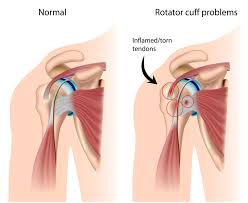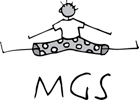At this time of the year, a lot of us find ourselves being tempted to make the most of the increasingly sunny and warm weather with swimming, surfing or even just cooling off with any sort of water-based activity. Unfortunately, this also correlates with a big rise in the number of shoulder injuries us physiotherapists see in the clinic.
‘Swimmers shoulder’ is an umbrella term used to describe a variety of shoulder injuries that are sustained by repetitive overhead loading of the shoulder. Commonly these injuries are not traumatic in nature but are more of a nagging pain which worsens with persistent activity and may not be completely relieved with rest.
The shoulder joint is comprised of a network of joint surfaces, ligaments, muscles and tendons which must all work cohesively to produce movement and stability of both the arm and the shoulder blade. Swimming, paddling on a board and even kayaking requires a significant amount of strength, coordination and endurance of these structures to produce movement.
Common swimmers shoulder symptoms:
 Pain at the front or side of the shoulder,
Pain at the front or side of the shoulder,- Aggravated by resisted movements at and above shoulder height
- Worsening shoulder weakness
- Early fatigue during activity
- Loss of speed/performance
Common causes:
- Sudden increases in load
- Poor swimming technique (common mistakes discussed later)
- Rotator cuff weakness
- Poor scapula mechanics
How to treat it:
Due to the complex nature of the shoulder joint, the numerous potential structures injured and potential causes of the injury, unfortunately, there is not a one size fits all treatment for swimming-related shoulder pain. However, common treatments include:
- Load management – reduce the frequency, intensity or time in the water
- Swimming technique training – common mistakes include:
- Allowing arm to cross the midline of the body
- Starting the stroke with the thumb pointing downwards
- Reduced rotation of torso during stroke
- Straight elbow during pull through
- Scapula strength and stability exercises
- Rotator cuff strength and stability exercises
- Pec and posterior rotator cuff release and stretches
If you are experiencing ongoing shoulder pain, please make an appointment to see one of our therapists at MGS to conduct an in-depth assessment and formulate a treatment plan to get you back in the water pain-free in no time!
